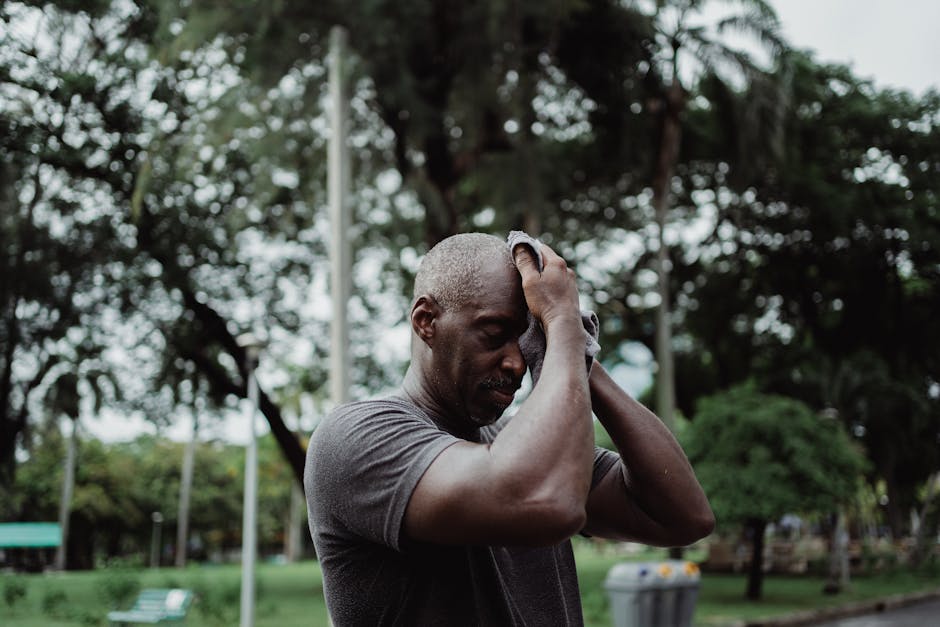The Importance of Routine in Recovery
Recovery from any form of challenge, whether it be physical, mental, emotional, or spiritual, can be a long and arduous journey. In these moments of struggle and growth, having a routine in place can make all the difference. Routines provide structure, stability, and a sense of normalcy in times of chaos and uncertainty. They offer a roadmap to navigate through the challenges and setbacks that often accompany the recovery process. In this article, we will delve into the importance of routine in recovery, exploring its benefits, implications, and practical applications in various aspects of life.
The Science Behind Routine

Routine plays a crucial role in recovery due to its impact on our brain’s neural pathways. When we engage in consistent behaviors and activities, our brain creates neural pathways that make those actions easier and more automatic over time. This phenomenon, known as neuroplasticity, allows us to form new habits, break old patterns, and rewire our brain for positive change.
Research has shown that routines can help regulate our emotions, improve our focus and concentration, and reduce stress and anxiety. In the context of recovery, having a structured routine can provide a sense of control and predictability, which are essential for maintaining motivation and resilience in the face of adversity.
The Benefits of Routine in Physical Recovery

When it comes to physical recovery, such as recovering from an injury, illness, or surgery, having a routine can significantly impact the healing process. Following a rehabilitation schedule, sticking to a consistent exercise routine, and adhering to a proper diet can all contribute to faster recovery times and better outcomes.
Physical therapists often emphasize the importance of consistency and repetition in rehabilitation exercises to strengthen muscles, improve mobility, and prevent re-injury. By incorporating these exercises into a daily routine, individuals can gradually regain strength and function, leading to a full recovery.
Moreover, routines can help individuals establish healthy habits, such as getting an adequate amount of sleep, staying hydrated, and managing stress, which are essential for overall well-being and recovery.
The Role of Routine in Mental Health Recovery

For individuals struggling with mental health challenges, such as depression, anxiety, or trauma, establishing a routine can be a powerful tool for healing and self-care. Mental health professionals often recommend creating a daily schedule that includes activities that promote relaxation, social connection, and personal growth.
Engaging in activities such as mindfulness meditation, journaling, exercise, and therapy sessions can help individuals manage their symptoms, improve their mood, and develop coping strategies for dealing with stress and triggers. By incorporating these activities into a daily routine, individuals can build resilience, enhance their self-esteem, and foster a sense of purpose and meaning in their recovery journey.
Creating a Routine for Emotional Recovery

Emotional recovery, such as recovering from a breakup, loss, or trauma, can be a complex and challenging process. In times of emotional distress, having a routine can provide a sense of stability and comfort amidst the chaos and pain. Establishing a routine that includes self-care activities, social support, and creative outlets can help individuals process their emotions, gain perspective, and find healing.
Activities such as spending time in nature, journaling, attending therapy, and participating in support groups can all be incorporated into a daily routine to nurture emotional well-being and promote healing. By creating a safe and nurturing environment through routine, individuals can cultivate self-awareness, self-compassion, and emotional resilience in the face of adversity.
The Spiritual Aspect of Routine in Recovery
For those on a spiritual journey of recovery, routine can serve as a way to connect with one’s inner self, higher power, or sense of purpose. Spiritual practices such as prayer, meditation, yoga, and reflection can be integrated into a daily routine to foster spiritual growth, self-discovery, and inner peace.
By establishing a sacred space and time for spiritual practices, individuals can deepen their connection to themselves and the divine, find solace in times of hardship, and draw strength from their faith and beliefs. Routine can provide a sense of grounding, balance, and alignment with one’s spiritual values and principles, guiding individuals on their path of recovery and transformation.
Overcoming Challenges and Building Resilience Through Routine
While routines can be incredibly beneficial in recovery, they are not without their challenges. Maintaining a routine requires discipline, commitment, and flexibility to adapt to changing circumstances and setbacks. Individuals may face obstacles such as fatigue, boredom, procrastination, or unexpected events that disrupt their daily schedule.
However, it is precisely in these moments of struggle and resistance that routines can be most powerful. By staying committed to their routine, individuals can cultivate resilience, perseverance, and self-discipline in the face of adversity. They can learn to overcome challenges, bounce back from setbacks, and stay focused on their goals and aspirations for recovery.
Practical Tips for Establishing and Sustaining a Routine in Recovery
Here are some practical tips to help individuals establish and maintain a routine in their recovery journey:
- Start small: Begin by incorporating one or two new activities into your daily schedule and gradually build up from there.
- Set realistic goals: Be realistic about what you can accomplish in a day and set achievable goals that align with your values and priorities.
- Stay consistent: Stick to your routine as much as possible, even on days when you don’t feel motivated or energized. Consistency is key to forming new habits and routines.
- Be flexible: Allow for some flexibility in your routine to accommodate unexpected events or changes in your circumstances. Adaptability is essential for sustaining long-term habits.
- Seek support: Reach out to friends, family, or a therapist for encouragement, accountability, and guidance in establishing and maintaining your routine.
By following these tips and staying committed to your routine, you can create a solid foundation for your recovery journey and enhance your overall well-being and quality of life.
Common Misconceptions About Routine in Recovery
One common misconception about routine in recovery is that it is rigid and inflexible. While routines provide structure and stability, they can also be adapted and modified to suit individual needs and preferences. Another misconception is that routines are only for those who are highly organized or disciplined. In reality, anyone can benefit from having a routine, regardless of their personality or lifestyle.
It’s important to recognize that routines are not meant to be restrictive or burdensome. They are meant to support and empower individuals on their journey of recovery, providing a sense of purpose, direction, and control in times of uncertainty and change.
Conclusion
In conclusion, routine plays a critical role in recovery by providing structure, stability, and support in times of challenge and growth. Whether it be physical, mental, emotional, or spiritual recovery, having a routine can help individuals navigate through obstacles, build resilience, and foster healing and transformation.
By incorporating activities that promote self-care, growth, and connection into a daily routine, individuals can create a roadmap for their recovery journey and cultivate positive habits and behaviors that promote well-being and fulfillment. Routines are not meant to be restrictive or rigid but rather to be flexible and adaptive to individual needs and preferences.
As you embark on your journey of recovery, remember that routine is not a one-size-fits-all solution but rather a tool to support and empower you on your path to healing and wholeness. Embrace the power of routine in your recovery journey, and may it guide you towards a brighter and more fulfilling future.




